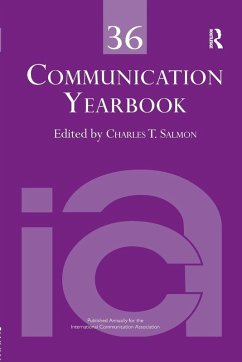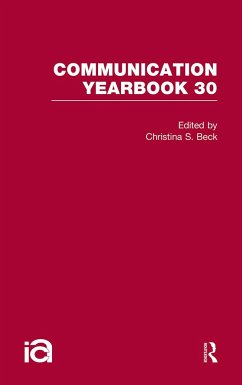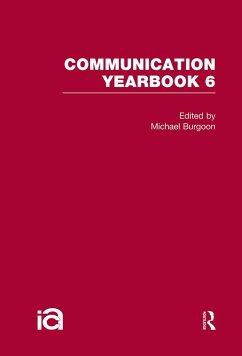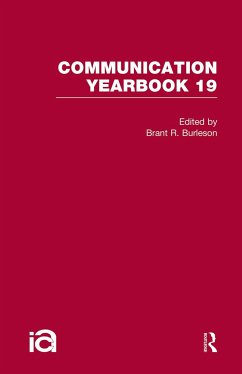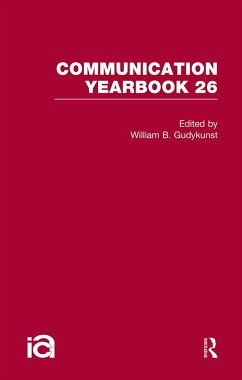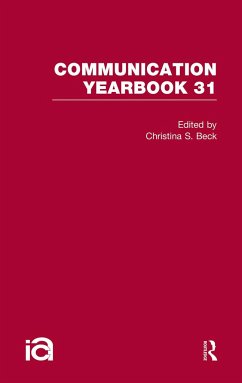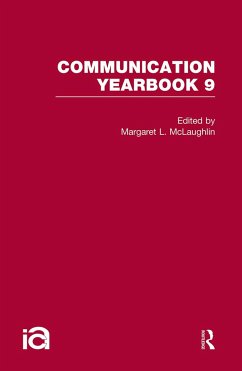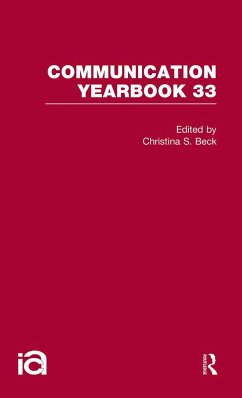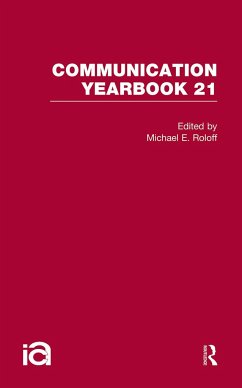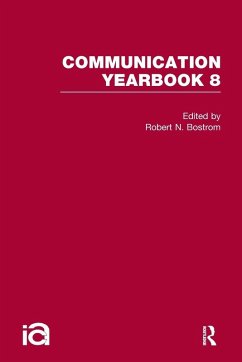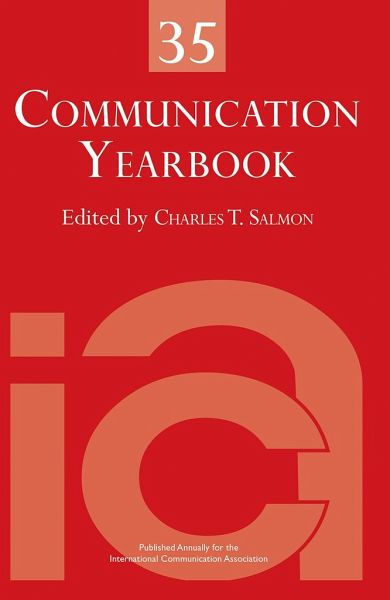
Communication Yearbook 35
Versandkostenfrei!
Versandfertig in 1-2 Wochen
60,99 €
inkl. MwSt.
Weitere Ausgaben:

PAYBACK Punkte
30 °P sammeln!
Communication Yearbook 34 continues the tradition of publishing state-of-the-discipline literature reviews and essays. Editor Charles T. Salmon presents a volume that is highly international and interdisciplinary in scope, with authors and chapters representing the broad global interests of the International Communication Association. The volume is organized into three sections, pertaining to interdisciplinary theory, normative ideals and political realities, and communication and societies in transition. Internationally renowned scholars serve as respondents for the three sections. With a ble...
Communication Yearbook 34 continues the tradition of publishing state-of-the-discipline literature reviews and essays. Editor Charles T. Salmon presents a volume that is highly international and interdisciplinary in scope, with authors and chapters representing the broad global interests of the International Communication Association. The volume is organized into three sections, pertaining to interdisciplinary theory, normative ideals and political realities, and communication and societies in transition. Internationally renowned scholars serve as respondents for the three sections. With a blend of chapters emphasizing timely public policy concerns and enduring theoretical questions, this volume will be valuable to scholars throughout the discipline of communication studies.





